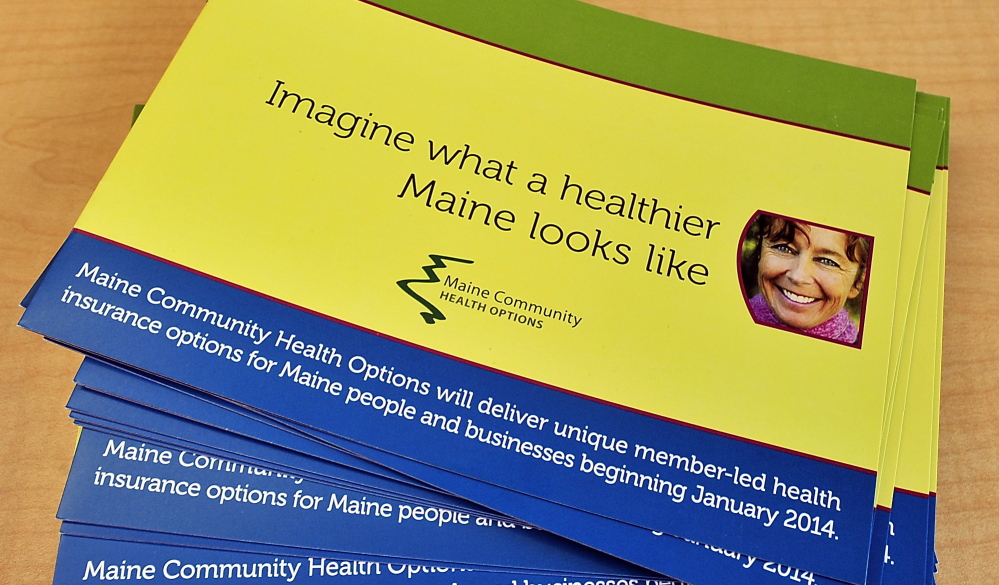In just a year, Community Health Options went from being a national success story to a company on the verge of insolvency. It would be tempting to blame that change on local management, particularly the decision to give hefty pay raises to its top executives.
But if overpaying executives killed health insurance companies, there wouldn’t be any still in business.
The roller-coaster ride that Community Health Options is on says more about the politics of our nation’s health care system than it does about the company, and the remedy should come from Washington, not Maine.
Nonprofit health insurance co-ops like Community Health Options were created with federal loans to offer an alternative to for-profit insurance companies on state exchanges. The hope was that these experimental organizations would develop lower-cost treatment models and create downward pressure on prices through competition.
But many of them got off to a bad start because they could not sell enough policies to cover their costs, and many of them have already failed.
Community Health Options was not one of those companies. It enrolled customers at better than 2½ times target levels, and finished 2014 as the only co-op in the nation to end the year without a loss.
But in the health insurance business, high enrollments can also carry a risk. The new co-op offered the lowest premiums and captured 83 percent of the individual market on the state’s exchange.
Unlike an existing company with a long history of claims to guide it, the new co-ops set its rates based on assumptions of how much its customers would use its plans. But many of the new customers were people who had not previously had health insurance, and they had pent-up demand for services. They used their coverage at a pace that exceeded projections.
A properly capitalized private insurance company would have the cash to manage that kind of fluctuation. When the co-ops were created, the federal government was supposed to provide that backing. But Obamacare foes in Congress have cut back that aspect of the program by two-thirds, leaving the co-ops to fend for themselves.
Community Health Options lost $31 million last year and has already put aside $43 million for losses in 2016. State insurance regulators have proposed putting the company into receivership and canceling policies for 18,000 people, an idea that the federal government has blocked. But the feds are not offering a better solution to rescue the co-op.
The problem isn’t Community Health Options – it’s that health care is too expensive. In the past, we dealt with high costs by pricing millions of people out of the insurance market. Now, when everyone is mandated to get coverage, the focus should be on reducing costs.
Competition was the mechanism that was supposed to make the Affordable Care Act work. In Maine, there are only two companies that sell policies on the exchange, and there is little pressure on them to lower prices.
The co-ops were built to develop relationships with providers and create integrated health care systems that get paid for keeping patients healthy, not just for treating them when they get sick.
That is still the right goal, but they need more time. Federal authorities should give these co-ops the support that was promised so they can develop a lower-cost treatment model that could drive costs down for everyone.
Correction: This editorial was amended at 1:56 p.m., March 24, 2016. A previous version said that both insurance companies on the exchange were for-profit. Harvard Pilgrim is a nonprofit.
Send questions/comments to the editors.



Success. Please wait for the page to reload. If the page does not reload within 5 seconds, please refresh the page.
Enter your email and password to access comments.
Hi, to comment on stories you must . This profile is in addition to your subscription and website login.
Already have a commenting profile? .
Invalid username/password.
Please check your email to confirm and complete your registration.
Only subscribers are eligible to post comments. Please subscribe or login first for digital access. Here’s why.
Use the form below to reset your password. When you've submitted your account email, we will send an email with a reset code.